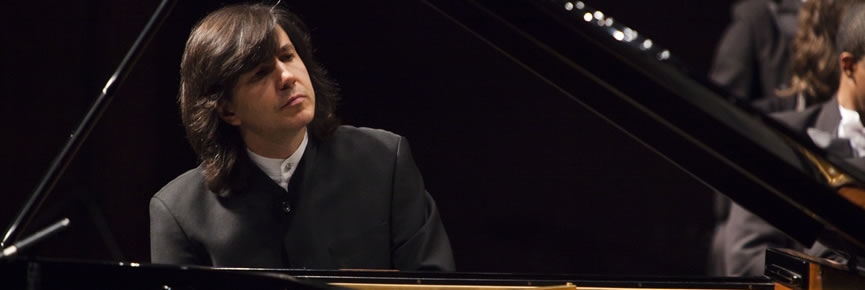
Ricardo Castro, a Brazilian-born pianist and conductor, first captured attention with his prodigious talent at the tender age of five. Admitted to the Federal University of Bahia’s School of Music under Esther Cardoso, a disciple of the esteemed Marguerite Long, Castro’s early flair for the piano quickly translated into public performances. By age ten, he was already enchanting audiences as soloist.
At 19 years old, Castro took a significant step to refine his craft by enrolling at the Geneva Conservatory of Music in Switzerland. There, he studied under the tutelage of piano virtuoso Maria Tipo and conductor Arpad Gerecz. His time in Europe was marked by a string of victories in prestigious competitions, including the Rahn Competition in Zurich (1985), the Pembaur Competition in Bern (1986), the International ARD Competition in Munich (1987), and the Geza Anda Competition (1988). Castro further honed his skills in Paris, studying piano with Dominique Merlet.
Castro's international stature was cemented in 1993 when he clinched the first prize at the Leeds International Piano Competition, becoming the first Latin American to achieve this since its creation. This victory propelled him onto the global stage, where he has since performed with leading orchestras such as the Leipzig Gewandhaus, Zurich Tonhalle, and BBC London Philharmonic, collaborating with luminaries like Sir Simon Rattle and Martha Argerich.
Beyond his accomplishments as a performer, Castro has also made a significant impact as a conductor. In 2007, he founded the NEOJIBA program, inspired by Venezuela’s El Sistema, aiming to democratize music education and provide transformative opportunities for underserved youth in Brazil. As its general and artistic director, he has led the NEOJIBA Orchestra in numerous celebrated performances both domestically and on international tours.
As an educator, Castro’s influence extends into academia. He started teaching piano in 1992 at HEMU Fribourg and since 2020, he has been a professor at the Haute École de Musique in Geneva, where he leads the keyboard instruments department. His innovative approach to teaching also shines at the Scuola di Musica di Fiesole in Italy, where he developed a pioneering course on conducting from the keyboard.
Ricardo Castro’s career is a testament to artistic excellence and social commitment. His work not only enriches the musical repertoire but also promotes cultural access, earning him international accolades, including the distinction of being the first Brazilian named an honorary member of the Royal Philharmonic Society. His enduring passion for music continues to inspire a new generation of musicians and music lovers worldwide.



